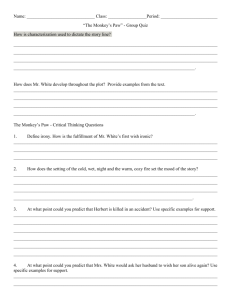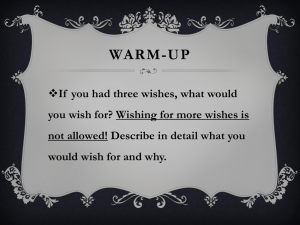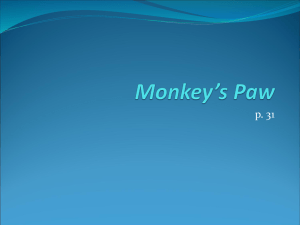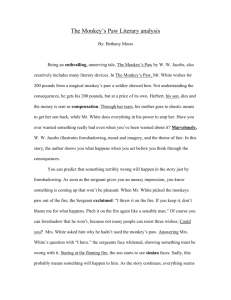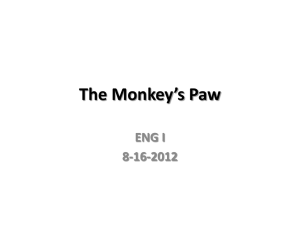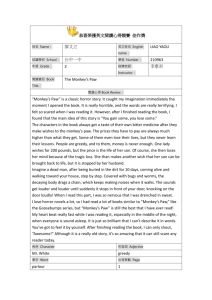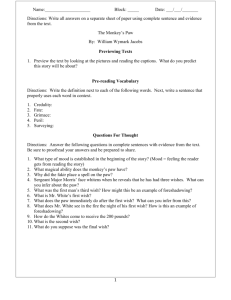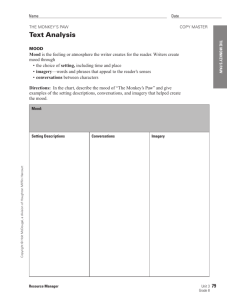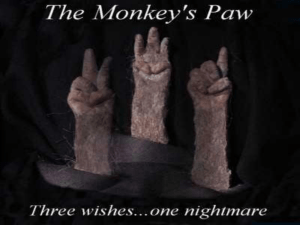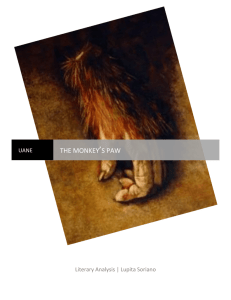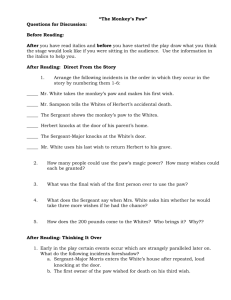Fiction Quiz: “The Monkey`s Paw”
advertisement
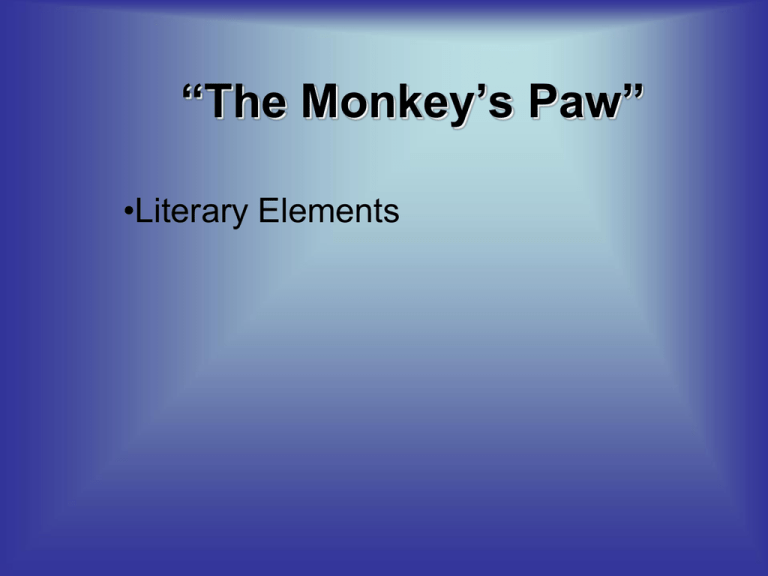
“The Monkey’s Paw” •Literary Elements Characterization • Dynamic and static characters • Each character Irony • Irony in the Monkey's Paw Conflict • Conflict in the Monkey's Paw Foreshadowing Foreshadowing in the Monkey's Paw Point of View • We do not really know the personal thoughts of any character. • We know what everyone is saying, but not what they are thinking and feeling inside. • We don’t see Herbert die. We just know what Mr. and Mrs. White find out at the end (that Herbert is dead now). • The story is has a third-person limited, objective narrator Theme • Theme means message. • Think to yourself: What is the author trying to say about greed? Is it good? Bad? What will happen if we’re greedy? In “The Monkey’s Paw,” the theme, or message, seems to be two fold: 1. Be careful what you wish for 2. Don’t allow greed to overtake you, it will lead to unhappiness. Setting and Mood • Setting is when and where something happens, plus what’s going on in the scene. Mood is the way the author wants the reader to feel because of what’s happening in the setting. • There is a contrast at the beginning of the story between the outside of the home: “the night was cold and wet” and the inside “a fire burned brightly” • When the outside is allowed into the house (Sgt. Major Morris and the Monkey’s Paw, the mood changes) • Time of day in this story affects the mood and tone greatly. Setting and Irony • The story opens on a dark, stormy cold night. This helps set the stage for the family to find out about the monkey’s paw and to make their first wish. • The next day the sun is out and it is a beautiful day. The reader thinks that all will be well. The irony is that Herbert dies a terrible death on that sunny, beautiful day. Irony is the opposite from what you were expecting happening in a story.
